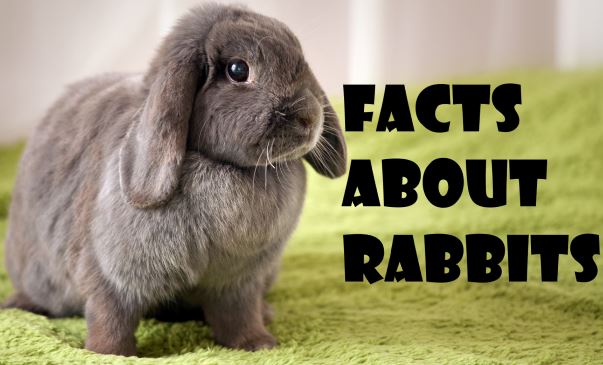What are rabbits?

Rabbits are small pets with long ears, short fluffy tails, and whiskers. Bunnies and rabbits are the same animal, there is no distinction in the species or breed and the names are all used by different people around the world.
Hares are born with both eyes open, hair all over their bodies, and they are able to run within a couple of minutes after being born. However, rabbits are born blind, naked, and stay in a fur-lined nest for the first couple of days of their lives.
There are roughly 900,000 rabbits being kept as pets in the United Kingdom alone as of 2019. This makes rabbits some of the most popular pets in the world.
Bunnies need to take in plant product in big amounts to make sure appropriate nutrition is consumed, and hence they have a great gastrointestinal systems. Their diet , includes large quantities of cellulose, which is tough to digest. Chewed food gathers in the big cecum, a secondary chamber in between the small and large intestinal tract consisting of big amounts of bacteria that help in the digestion of the food's cellulose and likewise produce specific B vitamins.
The majority of bunnies produce numerous offspring (kittens) every year, although shortage of resources might reduce this production. Bunnies typically are able to reproduce at a very young age, and many of them routinely have litters of up to 7 young, typically doing so 4 or sometimes 5 times a year.
Facts about rabbits

These are some of the factual things about rabbits.
- Rabbit's teeth grow continuously
- Rabbits are intelligent
- Rabbits have a weird digestive system
- Woa!!! Those are some big ears!
- Jackrabbits are very fast
Rabbit's front teeth grow about 3mm per week.
Rabbits can be taught to understand commands by giving them treats as a reward much like dogs.
Rabbits digestive system is so weird that the food they eat is processed and later
Their ears aren't only meant for listening. A rabbits ears are also used to regulate their body temperature.
To stay alive in the wild, rabbits have developed exceptional speed. Jackrabbits have been clocked at speeds of 45MPH. The fastest human on earth at the time of writing this is Usain Bolt who has a top speed of 27.78MPH.
Different breeds of rabbits

There are many different types of rabbits. Here is a list of 68 different breeds of rabbits
- Bunolagus (riverine rabbits)
- Brachylagus (pygmy rabbits)
- Oryctolagus (European rabbits, Old World rabbits, domestic rabbits)
- Pentalagus (Amami rabbits)
- Sylvilagus (cottontail rabbits)
- Nesolagus (Sumatran rabbits, Annamite striped rabbits)
- Romerolagus (volcano rabbits)
- Poelagus (Bunyoro rabbits)
- American Fuzzy Lop
- American Sable
- Argente Brun
- Argente Crème
- Blanc de Hotot
- Britannia Petite
- Argente de Champagne
- Belgian Hare
- Beveren
- Californian
- Checkered Giant
- Dutch Rabbit
- Chinchilla (Standard)
- Chinchilla (American)
- Chinchilla (Giant)
- Cinnamon
- Dwarf Hotot
- Dwarf Lop (Mini Lop in USA)
- English Angora
- Continental Giant
- English Spot
- Florida White
- French Angora
- English Lop
- French Lop
- Holland Lop
- Flemish Giant
- Giant Angora
- Giant Papillon
- Harlequin
- Lionhead Rabbit
- Mini Rex
- Netherland dwarf
- Polish Rabbit
- American
- Havana
- Himalayan
- Jersey Wooly
- Lilac
- New Zealand
- Palomino
- Rex (Standard)
- Rhinelander
- Satin
- Satin Angora
- Silver
- Silver Fox
- Silver Marten
- Tan
- Thrianta
- Velveteen Lop
Rabbits Health
Rabbits are usually healthy pets. They can, however, have health problems. Here is a list of the most common rabbit diseases and illnesses.
- Parasite infestation
- Snuffles
- Diarrhea
- Bloat
- Cancer
- Heart disease
- Fleas and ticks
A parasite infection in rabbits is usually caused by the rabbit being bitten by a flea, louse or ticks. The same thing happens with humans and dogs; they get infected when they are bitten. It can also be caused by eating grass that has been contaminated with rabbit feces (poop). A vet will prescribe medicine to help.
This is an upper respiratory infection that can be fatal in rabbits. It is common and not serious unless left untreated, with death being the eventual outcome to this disease.
Diarrhea in rabbits can be caused by certain types of plants and may or may not be fatal depending on the type of bacteria/virus that causes the diarrhea. It can usually be treated with antibiotics, but there is no guarantee. There have been cases where it turned into bacterial meningitis which is fatal.
Bloat is very common in male rabbits. It mostly happens when they reach a certain age. If the rabbit is very young, the bones are flexible and they can't hold hay straight so this will also cause bloating. The most common symptoms of bloat in rabbits is a distended stomach. You can tell by looking at their belly if it's bloated or not. If you feel your pet’s stomach and it feels unusually hard, then contact your veterinarian to schedule an emergency visit.
Cancer in rabbits usually occurs near the stomach area; however, it will most likely spread to other parts of the body. Tumors are also another form of cancer that may occur on the skin or inside of their ears (which can be really painful).
There is a common Urinary tract infection and blockage - If your rabbit has been urinating outside of the litter box (which is common in female rabbits and males when neutered) than they may have an UTI. Also, a blockage can occur from food or other materials that are ingested by them. It will usually cause vomiting and if not treated immediately, death.
The most common parasite to get on rabbits is fleas. Generally, this happens in hot weather which causes them to move around more freely outside of their cages or hutches; therefore making it easier for fleas to jump on them.
House pet or not?
Rabbits are more social than most other animals, though they weren't originally bred for that purpose. They make good companions for each other and usually get along well with dogs (they don't like cats because they're too quiet). If you want your companion rabbit to live for five years or more, never separate him from his friends/family. Rabbits require individual attention as much as any human does in order to maintain their emotional health; often their happiness is tied up with the moods of their owners.
Rabbits have a weird digestive system
A rabbit's digestive system gets the job done in an interesting way. It has a two-stage operation; the first part of digestion takes place in its stomach, and the second stage takes place using bacteria found in their hind gut.
But what happens to food before it is digested?
It actually passes through a special section of its digestive system called the cecum. The cecum is responsible for helping break down food. It contains many bacteria that help with the breakdown of fiber.
In rabbits, the gut is divided into two different sections: the small intestine and the large intestine. The small intestine handles absorption of nutrients from digested food while most of the digesting actually occurs in the large intestine.
Chowing down on grass? Rabbit's Diet
Rabbits can eat a wide variety of foods, but they must consume a lot of greens to meet their nutritional needs. Their digestive systems also have evolved so that the food stays in their gut longer than what it does with other animals . That means that they can go longer between meals and are less likely to overeat since all the green stuff takes up room in their gut.
Make sure to always offer greens and vegetables that have no pesticide on them whenever you can! If they are sprayed with pesticides or herbicides they could be dangerous for your bunny friend. They contain substances which could harm their kidneys and liver so it is always better to avoid them.
Rabbits do need more water than other pets because of this long digestion period. Make sure you always have fresh water available for your bunny friend.
Here are some fruits and vegetables your rabbits can eat- Carrots are great for rabbits as they provide your rabbit with beta-carotene which is what they need for good immune system. They also love apples but make sure it has no seeds.
- Lettuce can be fed to your rabbit but only in small amounts. It is high in water content which means the rabbit will go to the bathroom more often so you may have a few messes around your house.
- Cabbage is a great source of fiber. The fiber in cabbage will help your rabbit with digestion.
- Broccoli provides rabbit with enough fiber to help with digestion. It is an easy food to be fed to your rabbit.
- Cucumber provides enough moisture for rabbits without causing them to have diarrhea as it has a low-moisture level.
- Sunflower seeds are great for smooth shiny coats and teeth. They can also keep their body weight in control since sunflower seeds are high in protein, they will burn more calories which helps them lose weight and stay trim.
- Bananas provide great benefits to rabbits because they are rich in potassium and fiber. Potassium gives rabbits much-needed energy while fiber will help keep your pet from having constipation problems.
- Raspberries are great for your rabbit's digestive tract. They are also very tasty and will boost the immune system.
- Celery is a vegetable that is good for your rabbit's health because it is low in fat and high in protein. Celery will help rabbits have shiny coats and a healthy digestive system.
- Apples provide a mild laxative effect to rabbits which is good for their digestive system. They can also be used as treats because of its sweet taste.
- Pea Pods can be given to rabbits for its high nutritional value. One cup of pea pods can provide as much protein as a whole pound of meat because it is filled with protein.
Rabbit' Poop
Bunnies produce two kinds of fecal droppings- soft ones called cecotropes, and hard ones called round poops.
The soft droppings are digested food that your bunny's body can't use, so he eats them again and compact them into cecotropes- the size of a marble.
ConclusionRabbits are great creatures. They make excellent pets and are just great around kids. They do however poop and pee a lot so your cleaning game has to be top notch. Get you a bunny rabbit and enjoy watching it grow.
Use newspaper as litter for you bunny friend instead of plastic liners they come packed in. This will save money from buying plastic and the environment by reducing waste produced by these packages. Also it absorbs urine very well and is made out of recycled paper so that makes it very eco friendly.



